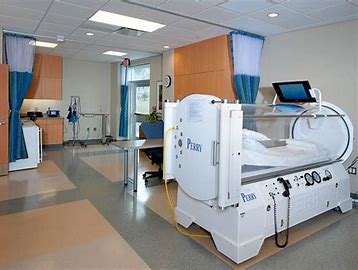The Lagos State Health Facilities Monitoring and Accreditation Agency (HEFAMAA) has shut down 30 health facilities in the past year for operating illegally or failing to meet government standards.
The disclosure was made on Friday during a sensitization town hall meeting organized by the agency at the Ifako-Ijaiye Local Government Secretariat.
The meeting was held to educate residents about the agency’s role and the importance of visiting only accredited health facilities.
Speaking at the event, the Permanent Secretary of HEFAMAA, Dr. Abiola Idowu, said the closures were part of efforts to rid Lagos of fake medical practitioners and unsafe health centres.
Dr. Idowu, represented by the Director of Monitoring and Inspection, Dr. Daniel Olayinka, explained that most of the sealed facilities were not registered with the state government or lacked qualified medical staff.
She said many operators could not provide professional licenses, while inspections revealed unhygienic environments, faulty equipment, and in some cases, no trained medical staff at all.
According to her, the agency’s mandate is to protect residents from unsafe healthcare practices, and this applies to both private and public health facilities.
HEFAMAA was established in 2006 under the Lagos State Health Sector Reform Law. It is responsible for registering, accrediting, and monitoring hospitals, clinics, maternity homes, eye clinics, nursing homes, and laboratories across the state.
The agency carries out routine inspections at least twice a year to ensure that facilities continue to meet standards.
Dr. Idowu stressed that the agency is not out to punish anyone but to ensure patients receive safe and quality healthcare.
She explained that during inspections, the agency checks staffing, processes, and equipment. If a facility no longer meets the conditions under which it was registered, it may be shut down.
Idowu advised residents to look out for HEFAMAA’s signage and registration certificates displayed at the reception areas of licensed health facilities.
She also introduced a new verification tool — QR codes placed in accredited facilities. By scanning the codes, patients can see details about the facility, such as its name, owner, address, and services, and also send feedback or complaints directly to HEFAMAA.
“This initiative helps us respond quickly to complaints. If you are satisfied or dissatisfied with the service you receive, your feedback comes directly to us and helps us monitor better,” she said.
Dr. Idowu also warned against visiting quack health facilities, which often disguise themselves as hospitals or laboratories but are run by unqualified individuals.
She explained that such operators usually vanish when complications occur, leaving patients stranded with no one to hold accountable.
“Quackery is dangerous. If something goes wrong in an unregistered facility, it becomes difficult to trace or sanction the operators. Some of them close overnight and resurface elsewhere. That is why residents must only use HEFAMAA-certified centres,” she warned.
The meeting brought together community leaders, health officers, council executives, and residents, all of whom pledged to support the agency’s work.
Dr. Idowu thanked traditional rulers and local government leaders for their cooperation and said community involvement was key in the fight against fake health services.
She reminded residents that anyone could become a patient at any time, which is why the government is committed to making healthcare safe.
She assured that HEFAMAA would continue monitoring both private and public facilities to ensure they maintain proper standards in staffing, equipment, and hygiene.
“Our goal is simple: every Lagos resident who seeks healthcare, whether in a private or public facility, should leave healthier, safer, and satisfied,” she concluded.


